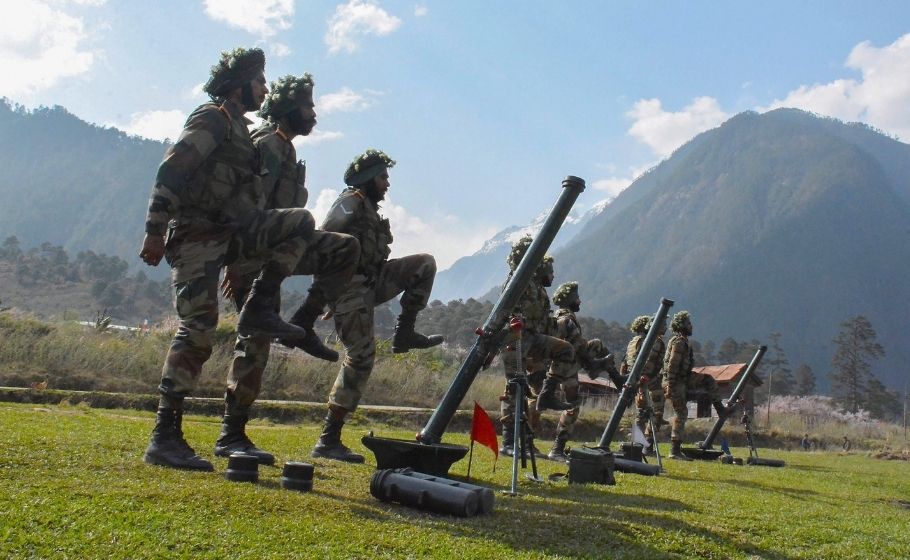
Centre launches ambitious Agnipath scheme for armed forces; find out what it entails

The Centre on Tuesday launched Agnipath, a short-term recruitment scheme for the armed forces that aims to bring down the average age profile of the Indian armed forces by 4-5 years besides cutting down salary and pension bills and freeing up funds for urgent procurement of weapons. Those selected under the scheme will be known as ‘Agniveers’.
Defence minister Rajnath Singh announced the scheme terming it a “historic” decision. The chiefs of all the three services — Army, Navy and Air Force — were present for the launch.
“The scheme will increase employment opportunities and aim to create a youthful profile of the armed forces. The ‘Agniveers‘ will be given a good pay package and an exit retirement package after four years of service,” Defence Minister Rajnath Singh said at a press conference after a Union Cabinet meeting.
Also read: How delay in armed forces recruitment has put lives of youths on hold
Around 45,000 to be recruited
Under the scheme, about 45,000 youth between the age of 17.5 years and 21 years will be inducted into the services for a four-year tenure. The recruitments will begin within the next 90 days and the first batch will be ready by July 2023.
The selection will be made through an online centralised system, the government said. Educational qualification for Agniveers will be the same as the criteria for regular positions in the force.
This four-year tenure will include a six-month training period and training for Agniveers would be on par with that of the regular armed forces cadres and would involve rigorous military exercises. The recruits will serve in all terrains — desert, mountain, land, sea, or air.
The recruits will be paid a monthly salary between Rs 30,000-40,000 plus allowances. The composite annual package for the first year would approximately be Rs 4.76 lakh with upgradation in the fourth year to approximately Rs 6.92 lakh. They will also be entitled to medical and insurance benefits.
After four years, only 25 per cent of these soldiers will reportedly be retained and they will join the regular cadre and go on to serve for a full 15 years in non-officer ranks. The remaining will exit with a package between Rs 11 – 12 lakh, but they will not be eligible for pension benefits.
Seva Nidhi package
The scheme includes a Seva Nidhi package, which entails that, every month, a soldier will contribute 30 per cent of his emoluments and the government will also contribute an equal amount. At their retirement after four years, the soldiers will receive around Rs 11.71 lakh, exempted from Income tax.
The forces announced that provisions have been made for loss of life or disability due to an injury on duty. In the unfortunate event of death, the financial package for soldiers under Agnipath includes non-contributory life insurance cover of Rs 48 lakh, additional ex-gratia of Rs 44 lakh for death attributable to service and pay for unserved portion up to four years, including the Seva Nidhi component
In the case of disability, soldiers will be given compensation based on the percentage of disability laid down by medical authorities. Soldiers will receive one-time ex-gratia of Rs 44 lakh/ Rs 25 lakh/ Rs 15 lakh in the event of 100 per cent/ 75 per cent /50 per cent disability, respectively.
Cutting down annual bills
The scheme, if successful, will drastically cut the annual revenue and pension bill, which accounts for half of the annual defence budget of Rs 5.2 lakh crore.
Women will also be inducted under the Agnipath scheme, Navy chief Admiral R Hari Kumar said.
The government says the scheme will enhance the “youthful profile” of the forces and also bring about a transformational shift towards a more tech-savvy combat force.
The scheme has drawn criticism from some quarters, with critics arguing that it will impact the fighting spirit and professionalism of forces. They have raised concerns that the four-year tenure may make soldiers risk-averse.

